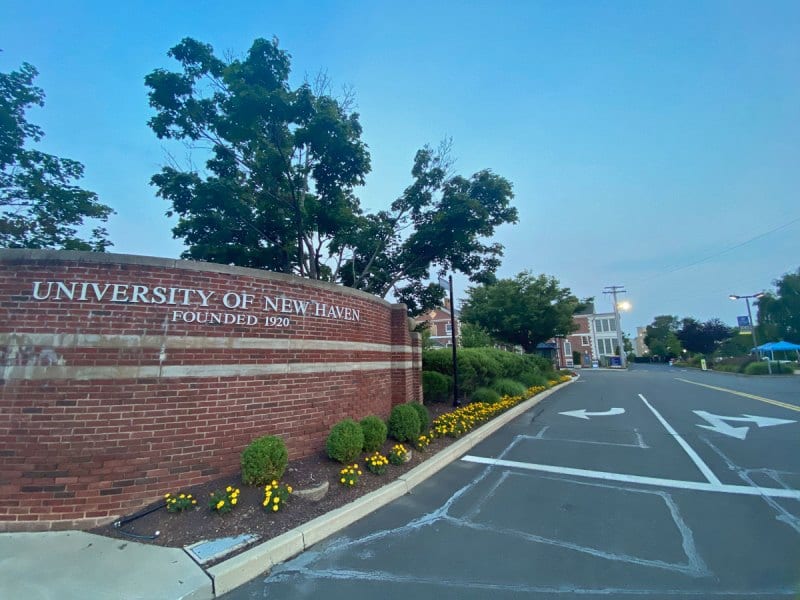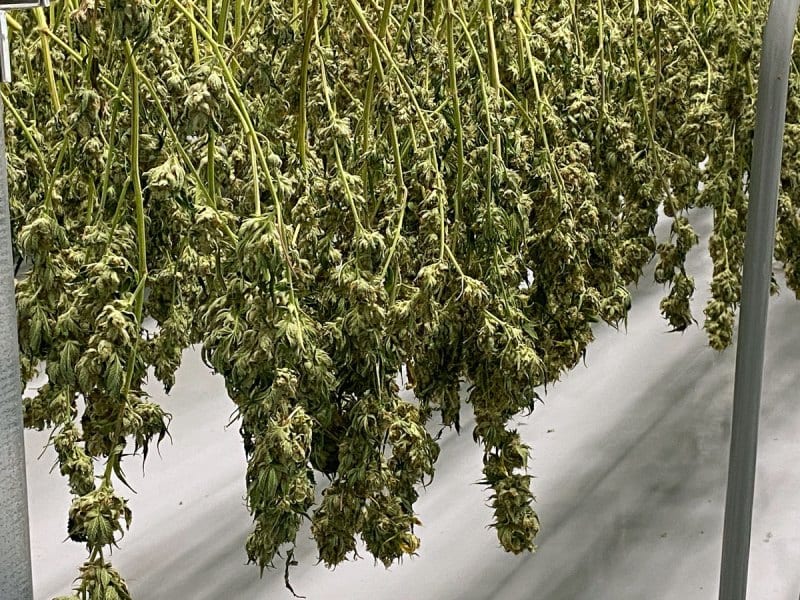Connecticut Colleges Remain Wary about Cannabis on Campus

Audio By Carbonatix

Photo credit: Ronni Newton (we-ha.com file photo)
UConn spokesperson Stephanie Reitz said the school is still reviewing details of the newly passed legislation, and the minimum age requirement for possession.
By Nicole McIsaac, CTNewsJunkie.com
Cannabis might be legal for adults over the age of 21, but colleges across Connecticut are left deciding how the new law will apply to its campus environment.
The new law allows adults over the age of 21 to possess 1.5 ounces of flower or 7.5 grams of concentrate. Adults can possess up to 5 ounces of cannabis in their home or have it locked away in the trunk or glove box of their cars.
Yet, colleges are held to the Drug Free Schools and Communities Act (DFSCA) which forbids drug use or possession in order to keep receiving the funds that directly apply to the school and its students.
Connecticut State Colleges and Universities (CSCU) Senior Executive Director for Compliance, Equity and Student Relations Angelo Simoni said that as a result of the funding, little change is going to occur under the new cannabis legislation.
“All of our students’ financial aid is important and needed,” Simoni said. “It is important not to negate that.”
A private, independent college like, Quinnipiac University said it will follow the same federal law.
“Changes in state law on recreational marijuana do not impact the university’s policies as we must abide by federal drug laws under the Drug Free Schools and Communities Act, which requires all higher education institutions to implement an alcohol and drug prevention program that prevents the unlawful possession, use and distribution of illicit drugs and alcohol on institutional premises or as part of any of its activities,” Associate Vice President of Public Relations at Quinnipiac University John Morgan said.
Many universities in Connecticut have a mixed population of students. Some are under the age of 21 and some are over the age of 21.

University of New Haven. Photo credit: Nicole McIsaac, CTNewsJunkie.com
“At the University of New Haven, university policy regarding cannabis remains unchanged as a result of the new state law – the use or possession of narcotics, cannabis or controlled substances, or possession of drug-related paraphernalia, is not permitted on campus or during university-sponsored, off-campus events,” Associate Vice President for Marketing and Public Relations at the University of New Haven Doug Whiting said. “This policy is spelled out in both our Student Handbook and Employee Handbook and therefore applies to all students and all employees. The policy is applicable to student behavior off-campus as well as on campus.”
If a minor is caught with cannabis, they will be treated much like they would if they were caught with alcohol under the age of 21. An adult 18 to 20 years old can be fined $50 for the first offense of possessing up to 5 ounces.
The new law leaves some discretion with police officers when dealing with minors. On the first offense, police can let juvenile offenders caught with less than 5 ounces of cannabis off with a written warning or refer them to youth services. On the second offense, that referral is mandatory. A third offense is considered a delinquent act and could result in an arrest.

Cannabis plants. Courtesy of CTNewsJunkie.com
“In addition, an individual allowing someone under 21 years old to loiter at a cannabis store will receive a $1,000 fine on the first offense with subsequent offences as a Class B misdemeanor,” the governor’s office wrote. “It will be a Class D misdemeanor for a person under the age of 21 to lie about their age or use a fake ID in an attempt to buy cannabis. Delivery services will be required to use online ID and age verification.”
Many schools are seeing this as an opportunity to educate their students.
Whiting said that the University of New Haven will continue to comply with DFSCA and the university’s substance use task force will be providing additional educational programs during the academic year on cannabis.
“If students are in a location where others are using illegal drugs, they may be held responsible for the violation as well,” the University of New Haven writes in its student handbook. “Students who are suspected to have violated these regulations will be subject to University disciplinary action.”
The University of Connecticut is also being cautious, ensuring that its students continue to follow measures already in place until the school finalizes a decision regarding student usage and possession.
UConn spokesperson Stephanie Reitz said the school is still reviewing details of the newly passed legislation, and the minimum age requirement for possession.
“UConn Student Affairs is reviewing how these issues intersect with its work regarding enforcement of the Student Code of Conduct, guidance for Resident Assistants in residence halls, and related topics,” Reitz said. “Those reviews are still under way and groups are actively engaged in the discussions.”
Simoni said that CSCU colleges will continue to follow the same disciplinary actions.
“If a student was caught with a small amount of cannabis on them, they most likely wouldn’t be thrown out or expelled from the school,” Simoni said. “But, they would still have to follow the same conduct that was in place for using or possessing drugs on campus.”
Some universities aren’t making changes to its policy.
“The university policy regarding cannabis usage on campus remains unchanged,” Manager of Media and Public Relations at Wesleyan Steven Scarpa said. “Wesleyan is committed to creating a safe and healthy environment for all members of our student community.”
What do students think?
“I believe that if you are of age, you should be able to have marjuanna on campus,” Eastern Connecticut State University student Kelly Schneider said. “It is now legal, so it should be allowed on a college campus.”
Eastern Connecticut State University recently announced it was launching one of the state’s first hemp cultivation minor this fall.
“Depending on what the marijuana is being used for, I think it is okay if a student possesses it in a college environment,” Quinnipiac University student Joanna Haligowski said. “Marijuana has many medicinal benefits and if it helps a student then I believe it is okay.”
Republished with permission from CTNewsJunkie.com, all rights reserved.
Like what you see here? Click here to subscribe to We-Ha’s newsletter so you’ll always be in the know about what’s happening in West Hartford! Click the blue button below to become a supporter of We-Ha.com and our efforts to continue producing quality journalism.



